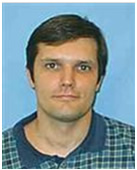18 Mar Preclinical Engineered Troponin Keeps Heart Beating Longer
MedicalResearch.com Interview with:
Jonathan P. Davis , Ph.D.
Associate ProfessorThe Ohio State University Medical Center
Department of Physiology & Cell Biology.
Columbus, OH 43210
MedicalResearch.com: What is the background for this study? What are the main findings?
Dr. Davis: Myocardial infarction (MI) is a leading cause of heart failure and death in the US. Since the infarcted heart does not contract as well, therapeutics have been designed (i.e. positive inotropes) to help the heart contract better. While current positive inotropes help the patients in the short-term, they have detrimental long-term effects (“feel better but die sooner”). There is a dire need to be able to increase cardiac contraction without the deleterious side effects. We have achieved this goal by engineering the Ca2+-dependent switch in the heart, troponin C, to be able to better bind Ca2+. Combining gene therapy with our smartly formulated TnC, we demonstrated that our novel strategy not only protected the mouse from the negative consequences of an MI, but was also therapeutic when given after the MI.
MedicalResearch.com: What should clinicians and patients take away from your report?
Dr. Davis: Positive inotropes in the clinic are used only as a last resort. Our work demonstrated that there is a safe way of increasing cardiac contractility. By using our approach, one day patients will be able to keep their hearts contracting better for a long time (feel better, live longer).
MedicalResearch.com: What recommendations do you have for future research as a result of this study?
Dr. Davis: Our studies were performed in a pre-clinical model of murine heart disease. Future studies using our engineered protein are being performed in larger animal models with the hope of one day translating this therapeutic approach to human patients.
MedicalResearch.com: Is there anything else you would like to add?
Dr. Davis: We are engineering several other proteins that will not only help the heart but will be useful in other diseases. Thus, combining gene therapy with designer proteins opens the door for unprecedented personalized medicines against a plethora of human diseases.
MedicalResearch.com: Thank you for your contribution to the MedicalResearch.com community.
Citation:
Nat Commun. 2016 Feb 24;7:10794. doi: 10.1038/ncomms10794.
Rationally engineered Troponin C modulates in vivo cardiac function and performance in health and disease.
Shettigar V1, Zhang B1, Little SC2, Salhi HE1, Hansen BJ1, Li N1, Zhang J1, Roof SR3, Ho HT1, Brunello L1, Lerch JK4, Weisleder N1, Fedorov VV1, Accornero F1, Rafael-Fortney JA1, Gyorke S1, Janssen PM1, Biesiadecki BJ1, Ziolo MT1, Davis JP1.
[wysija_form id=”5″]
Note: Content is Not intended as medical advice. Please consult your health care provider regarding your specific medical condition and questions.
More Medical Research Interviews on MedicalResearch.com
Riley Steiner (2016). Preclinical Engineered Troponin Keeps Heart Beating Longer MedicalResearch.com
Last Updated on March 18, 2016 by Marie Benz MD FAAD

